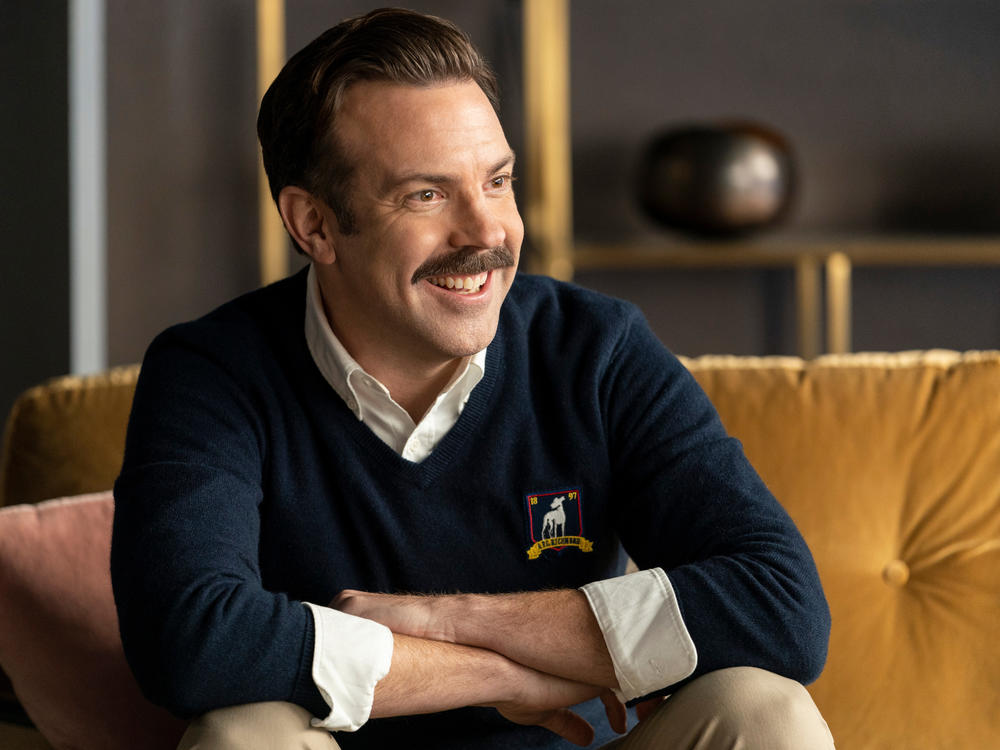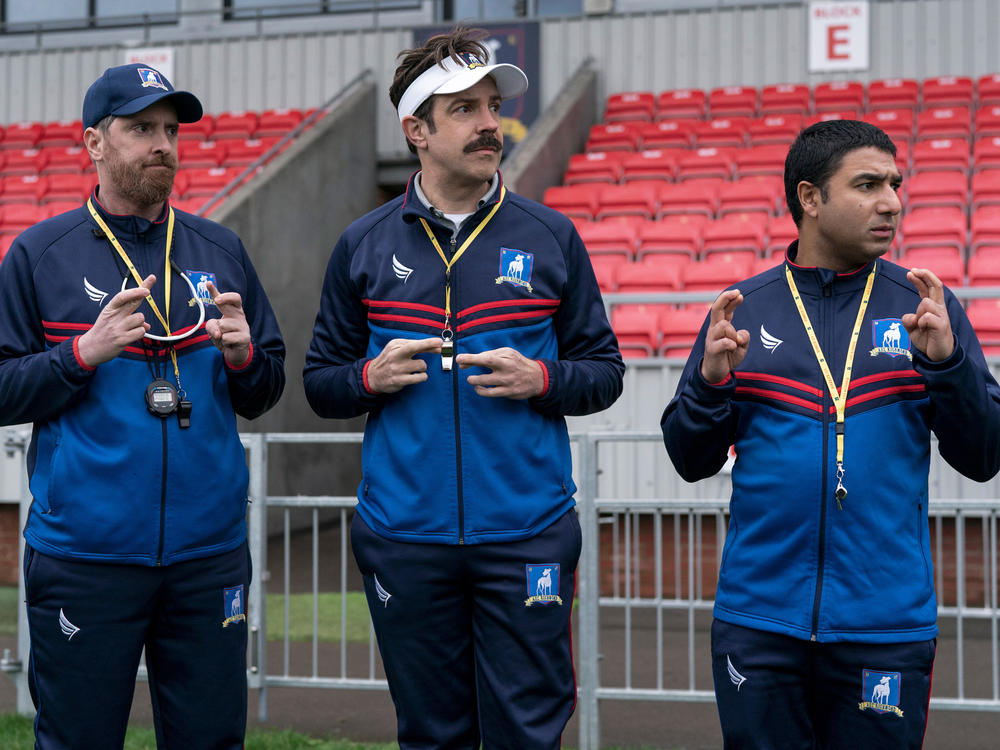Section Branding
Header Content
'Ted Lasso' Is Back, And You Bet Your Biscuits Season 2 Is Just As Sweet
Primary Content
Right about now is when many people would start to hate Ted Lasso.
The show's first season was a come-from-nowhere hit on Apple TV+ last year — an amusing ode to the power of niceness which got a serious viewership boost thank to pandemic lockdowns.
Since then, Ted Lasso has reaped the kind of success few shows see in a freshman season, including 20 Emmy nominations — a record for a first-year comedy. Who knew a fish-out-water tale about a clueless American coach taking over a soccer (excuse me, "football") team in England could be so touching, encouraging and straight-up funny?
So, as its second season hits the world tomorrow, it's natural to expect lots of nitpicking and cynicism, as everyone looks for a weak spot in the Lasso juggernaut, positioning themselves to pronounce a sophomore slump.
Yes, the second season is as good as the first
But here's the thing. The second season's episodes are just as good — if not better — than the first. The show's cast of characters — an eccentric assembly of players, coaches and administrators running a hapless soccer (sorry again, "football") team in England — have become something of an onscreen family.
And the best aspect of this new season is the way these supporting characters have gotten more space to shine. Brett Goldstein's retired footballer Roy Kent is an f-bomb spewing Socrates — gruffly blunt and uncompromising, but also insightful and caring, even as he struggles with his relationship to the sport to which he has devoted his life, but isn't playing anymore.
Brendan Hunt should get a special Emmy for reaction shots, as his taciturn Coach Beard raises his eyebrows to the sky while watching longtime pal Coach Lasso navigate long distance parenting and the arrival of a new, prickly-yet-effective sports psychologist.
Hannah Waddingham's icy team owner Rebecca Welton, Jeremy Swift's sycophantic operations director Leslie Higgins and Nick Mohammed's mild-mannered assistant coach Nathan Shelley all show fresh depth and a more nuanced humanity in new stories centered on their characters. Small wonder all of them — along with Juno Temple as plucky model-turned-PR executive Keeley Jones — were nominated for Emmy awards this year as supporting performers.
Sudeikis shines as Ted Lasso
And then there's Jason Sudeikis' Ted Lasso. In lesser hands, this folksy, relentlessly optimistic fountain of encouragement and odd sayings ("There's two buttons I never like to hit," he tells a journalist after a disappointing match. "That's 'panic' and 'snooze.'") could come across as something of a creep.
Instead, his earnest good intentions shine through, even as we learn that Coach Lasso's attitude is partly a coping mechanism hiding a struggle with much more serious issues. Just when Lasso's breezy approach is about to seem impossibly effective or too cutesy ("He's a wigwam and a teepee," the coach says of one player. "Too tense.") Sudeikis and his writers come up with a jolt of emotionalism that gets things back on track.
Indeed, Ted Lasso's superpower is its ability to offer surprising and challenging storylines, even while holding onto its mission of emphasizing the power of human kindness and empathy.
For example, when Kent's niece gets depressed about a boy at school who called her breath stinky, the ex-footballer takes a good whiff, fully intending to lie about how great the aroma is — only to admit, just half jokingly, "I think you might be dying." (The odyssey that ensues, on Christmas Day, may be the show's best example of riding the line between heart-tugging sentiment and unexpected laughs.)
In Ted Lasso's world, the worst sin any character can commit is gratuitous cruelty. So even the toughest members of this onscreen family get a humanizing touch. Often, they are their own worst enemies, with problems that are mostly the result of getting in their own way, helped along by corrosive romantic partners or blithely hurtful parents who haven't yet learned the lessons of Coach Lasso's healing empathy.
All this may be a bit much for those who prefer their TV humor a bit more cynical and biting. I admit, I spent parts of some episodes dreading the moment when the storyline would become too predictable, maudlin or outrageous. But that moment never came.
So when this second season of Ted Lasso makes you laugh and grow misty-eyed in equal measure, there will be no need to cite the desire for connection in the face of a pandemic or the rejection of cynicism in an emergency.
This time around, you'll just be enjoying a uniquely distinctive comedy made with a lot of talent and a lot of heart. And that's welcome on my TV screen anytime, pandemic or not.
Copyright 2021 NPR. To see more, visit https://www.npr.org.


